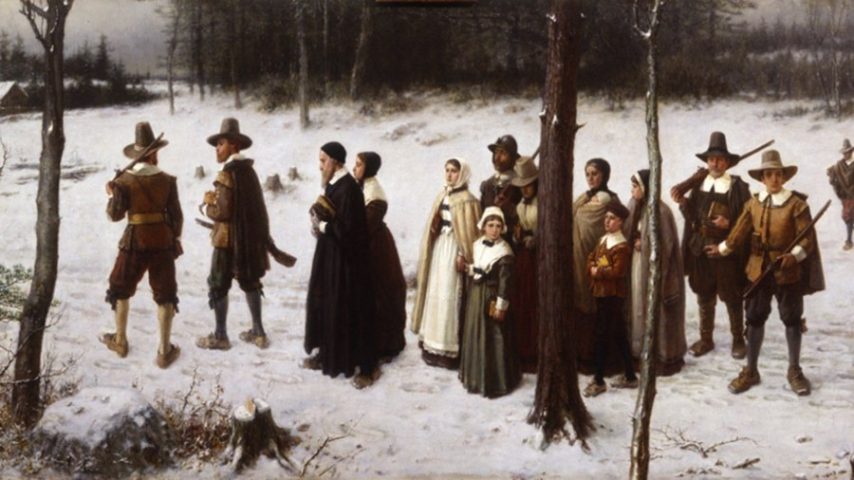By Lawrence W. (“Larry”) Reed, The Stream, November 27, 2019
 Next year at this time, Americans will mark the 400th anniversary of the landing of the Mayflower in 1620 and the subsequent founding of the Plymouth colony by English Separatists we know as the Pilgrims. They, of course, became the mothers and fathers of the first Thanksgiving.
Next year at this time, Americans will mark the 400th anniversary of the landing of the Mayflower in 1620 and the subsequent founding of the Plymouth colony by English Separatists we know as the Pilgrims. They, of course, became the mothers and fathers of the first Thanksgiving.
The Common Property Approach
The first few years of the settlement were fraught with hardship and hunger. Four centuries later, they also provide us with one of history’s most decisive verdicts on the critical importance of private property. We should never forget that the Plymouth colony was headed straight for oblivion under a communal, socialist plan. It saved itself when it embraced something very different.
In the diary of the colony’s first governor, William Bradford, we can read about the settlers’ initial arrangement. Land was held in common. Crops were brought to a common storehouse and distributed equally. For two years, every person had to work for everybody else (the community), not for themselves as individuals or families. Did they live happily ever after in this socialist utopia?
Hardly. The “common property” approach killed off about half the settlers. Governor Bradford recorded in his diary that everybody was happy to claim their equal share of production, but production only shrank. Slackers showed up late for work in the fields, and the hard workers resented it. It’s called “human nature.” ….





 Next year at this time, Americans will mark the 400th anniversary of the landing of the Mayflower in 1620 and the subsequent founding of the Plymouth colony by English Separatists we know as the Pilgrims. They, of course, became the mothers and fathers of the first Thanksgiving.
Next year at this time, Americans will mark the 400th anniversary of the landing of the Mayflower in 1620 and the subsequent founding of the Plymouth colony by English Separatists we know as the Pilgrims. They, of course, became the mothers and fathers of the first Thanksgiving.

